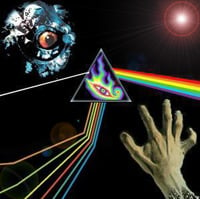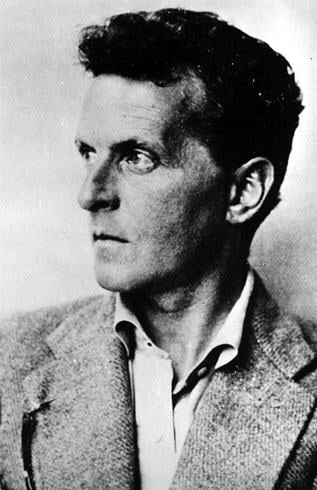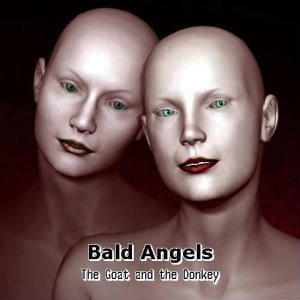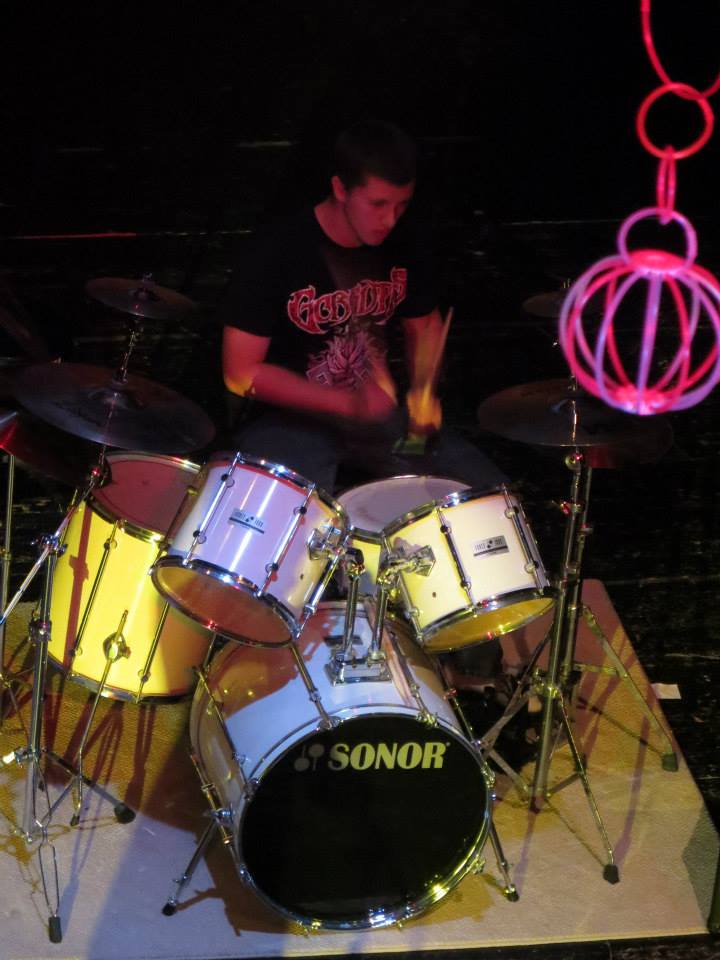| Author |
 Topic Search Topic Search  Topic Options Topic Options
|
topofsm 
Forum Senior Member


Joined: August 17 2008
Location: Arizona, USA
Status: Offline
Points: 1698
|
 Topic: Better composed? Topic: Better composed?
Posted: August 22 2009 at 19:39 |
It seems to me that people think that good song composition means two different things. Some seem to believe that when bands write music with little repetition and lots of flowing ideas and moods with an unusual structure and often long songs the composition isn't good because people say it goes nowhere. However, there are other people that say that with bands like Yes and Dream Theater even though they have extended sections and lots of ideas thrown in that the composition is too basic because there are a couple standard verses and choruses.
What do you generally think means better composition?
Of course with all music everything is best in moderation, so it's good to have just a bit of both. I'd just like to know what people generally think makes the composition better.
|
|
|
 |
keiser willhelm 
Forum Senior Member


Joined: September 14 2007
Location: United States
Status: Offline
Points: 1697
|
 Posted: August 22 2009 at 19:51 Posted: August 22 2009 at 19:51 |
|
neither?
i wouldnt call a song of the second option "composed" per say. for exampe, id never say that a beatles song is a composition, (though it certainly is) meaning the structure of the song is irrelevant. i know whats coming. they wrote a song around a pre existing structure. verse, chorus bridge all that jazz. in that case i would look at the riff, the hooks, etc. whatever. thats what makes those songs enjoyable, not the composition. soooo.
and the first option sounds pretty specific too. maybe? i think you probably need to rethink your poll options beacuse neither sounds very appealing.
for me, id like a composition that fully exploits a theme, expands upon it, or just something interesting.
not to beat a dead horse but i like toby drivers compositions in kayo dot or his solo stuff. but i also like krautrocks compositions of repeated sounds and loops and funky rhythms.
|
|
|
 |
A Person 
Forum Senior Member


Joined: November 10 2008
Location: __
Status: Offline
Points: 65760
|
 Posted: August 22 2009 at 20:04 Posted: August 22 2009 at 20:04 |
|
Both are good. I like music that flows through various themes, like "Suppers Ready" but I like krautrock too.
|
 |
BaldJean 
Prog Reviewer


Joined: May 28 2005
Location: Germany
Status: Offline
Points: 10387
|
 Posted: August 22 2009 at 20:23 Posted: August 22 2009 at 20:23 |
|
repetition is the bread and butter of composition
|
 A shot of me as High Priestess of Gaia during our fall festival. Ceterum censeo principiis obsta
|
 |
Endless Wire 
Forum Senior Member


Joined: April 27 2007
Location: United States
Status: Offline
Points: 403
|
 Posted: August 22 2009 at 23:39 Posted: August 22 2009 at 23:39 |
Well neither necessarily makes for a better composition. A good composition has more to do with how the parts relate to each other than the form of the structure, although it helps. Personally, I prefer music which breaks the typical ABABCAB form. Honestly most I the time I think it's just downright lazy to use this structure that has been used to death. Never understood why so many people feel that its the most effective way to convey a message...
Sorry for the side rant.
|
|
.
|
 |
Figglesnout 
Forum Senior Member

Joined: November 26 2005
Location: United States
Status: Offline
Points: 1455
|
 Posted: August 23 2009 at 00:30 Posted: August 23 2009 at 00:30 |
|
This is an impossible question (and a loaded one).
A lot of my favorite music is in the first category. A lot of it is in the second.
I'll vote for the second category because I like more of it and because it needs more votes, but the idea that either is intrinsically better than the other is incredibly distasteful to me.
|
|
I'm a reasonable man, get off my case
|
 |
Figglesnout 
Forum Senior Member

Joined: November 26 2005
Location: United States
Status: Offline
Points: 1455
|
 Posted: August 23 2009 at 00:32 Posted: August 23 2009 at 00:32 |
 Endless Wire wrote: Endless Wire wrote:
Well neither necessarily makes for a better composition. A good composition has more to do with how the parts relate to each other than the form of the structure, although it helps. Personally, I prefer music which breaks the typical ABABCAB form. Honestly most I the time I think it's just downright lazy to use this structure that has been used to death. Never understood why so many people feel that its the most effective way to convey a message...
Sorry for the side rant. |
Various forms take over at various times because they're effective and well-liked. Obviously ABABCAB is simpler than, say, the sonata form, but it's no more lazy for artists to use ABABCAB than it was lazy for basically all composers at a certain time to use the sonata form.
|
|
I'm a reasonable man, get off my case
|
 |
topofsm 
Forum Senior Member


Joined: August 17 2008
Location: Arizona, USA
Status: Offline
Points: 1698
|
 Posted: August 23 2009 at 00:50 Posted: August 23 2009 at 00:50 |
I purposely tried to make each option as appealing as the other. The second obviously refers to ABABCAB form. I've felt that a lot of the people here say that they prefer when the song structure breaks out from the form, yet I also see a lot of people say that compositions by, say, Behold... The Arctopus, Between the Buried and Me, and Maudlin of the Well should have music that is more concise. Of course, the three of them could turn people off for elements other than that, but I've seen a lot of comments I've seen (most often other internet places, but even here) that suggest that they should make more basic song structures.
Of course, there is almost always endless praise for great classical works, which except for minimalism only repeat ideas a few times, and instead the melodies flow naturally and lots of different melodies occur over a short period of time.
While it is unfair to compare popular music like prog to artistic music like classical, as a musical genre that attempts to make music as sophisticated as artistic music shouldn't the structure be one of the most important aspects?
|
|
|
 |
Man With Hat 
Collaborator


Jazz-Rock/Fusion/Canterbury Team
Joined: March 12 2005
Location: Neurotica
Status: Offline
Points: 166183
|
 Posted: August 23 2009 at 01:00 Posted: August 23 2009 at 01:00 |
|
I would say something that contains flowing themes and many sections is better composed. It would seem to me that writing a song that has those qualities would be harder to pull off successfully than say a minimalism piece or a basic pop/rock structure. (Not to discount minimalism...in fact I'm a fan. I'm a fan of repitition as well, just its easy to overuse. I also probably prefer music that is constantly shifting from one place to another.)
|
|
Dig me...But don't...Bury me
I'm running still, I shall until, one day, I hope that I'll arrive
Warning: Listening to jazz excessively can cause a laxative effect.
|
 |
ExittheLemming 
Forum Senior Member


Joined: October 19 2007
Location: Penal Colony
Status: Offline
Points: 11420
|
 Posted: August 23 2009 at 04:03 Posted: August 23 2009 at 04:03 |
|
If the music communicates to me and makes me feel something it hardly matters a discarded fig what the compositional form is. e.g Bob Dylan's Standing In the Doorway makes me weep and it's just 4 chords with a cyclic verse chorus structure. Instrumental music on the other hand would quickly become very unsatisfying if such an unwavering design were followed for more than say 5 minutes ? Surely it all depends on what the composer is trying to communicate and what sort of emotional effect they want to produce in the listener ?
|
 |
BaldJean 
Prog Reviewer


Joined: May 28 2005
Location: Germany
Status: Offline
Points: 10387
|
 Posted: August 23 2009 at 04:23 Posted: August 23 2009 at 04:23 |
 topofsm wrote: topofsm wrote:
I purposely tried to make each option as appealing as
the other. The second obviously refers to ABABCAB form. I've felt that
a lot of the people here say that they prefer when the song structure
breaks out from the form, yet I also see a lot of people say that
compositions by, say, Behold... The Arctopus, Between the Buried and
Me, and Maudlin of the Well should have music that is more concise. Of
course, the three of them could turn people off for elements other than
that, but I've seen a lot of comments I've seen (most often other
internet places, but even here) that suggest that they should make more
basic song structures.
Of course, there is almost always endless praise for great
classical works, which except for minimalism only repeat ideas a few
times, and instead the melodies flow naturally and lots of different
melodies occur over a short period of time.
While it is unfair to compare popular music like prog to artistic
music like classical, as a musical genre that attempts to make music as
sophisticated as artistic music shouldn't the structure be one of the
most important aspects? |
I think this is a misunderstanding of the classical works. actually it
was just the other way round: a main theme is being introduced and then
varied, then maybe a side theme will be introduced and varied too (though not necessarily). these variations may be very complex and sometimes
unrecognizable for someone without deep musical knowledge (would you
recognize a theme if it is played backwards, upside down (meaning
falling when the original theme rises and vice versa) and in half the
speed? but that's exactly what Bach does in many of his compositions,
and that's just one of his tricks. and he is by far not the only one. it is rather the opposite: your meandering kind of music was actually
chaffed at for a long time; there were very strict rules for composition. Beethoven broke with many of the forms and
tore free of these restrictions. later composers of course went even
farther, and in the late 20th century there was a kind of "anything
goes" mentality among composers which carries on until today.
on the other hand many artists in here play very freestyle, without any form at all. just listen to some early Kraut
|
 A shot of me as High Priestess of Gaia during our fall festival. Ceterum censeo principiis obsta
|
 |
The Sleepwalker 
Prog Reviewer


Joined: February 03 2009
Location: The Netherlands
Status: Offline
Points: 15141
|
 Posted: August 23 2009 at 04:35 Posted: August 23 2009 at 04:35 |
Both are good if the music in the compositions is good. If the music is bad, I don't care if it's a basic verse, chorus, verse song or a long suite. There are many examples of relatively simple songs from the bands on this site that easily are better than some of the epics... so... no vote for me.
By the way, in which of the two categories do songs like VDGG's Lost and KC's Starless fit in? They start out with pretty basic verse, chorus, verse structures but in the second half they're more comlicated with jams, solos and sudden changes.
Edited by floydispink - August 23 2009 at 04:39
|
|
|
 |
The Truth 
Collaborator


Honorary Collaborator
Joined: April 19 2009
Location: Kansas
Status: Offline
Points: 21795
|
 Posted: August 23 2009 at 10:42 Posted: August 23 2009 at 10:42 |
|
When you combine both it creates one heck of a song, like... Man-Erg by Van Der Graff! It has two verses that almost repeat each other but then goes off in a totally unexpected direction with a weird instrumental section and then back to a couple verses but not sounding anything like the first two. Thats music! (I think I said that right)
|
|
|
 |
J-Man 
Prog Reviewer


Joined: August 07 2008
Location: Philadelphia,PA
Status: Offline
Points: 7826
|
 Posted: August 23 2009 at 12:20 Posted: August 23 2009 at 12:20 |
|
Take a guess what's going to win on a progressive rock site!!!
This is a pretty pointless poll, and that's why Choice One is wining 12 to 1.
|
|
|
 |
The Sleepwalker 
Prog Reviewer


Joined: February 03 2009
Location: The Netherlands
Status: Offline
Points: 15141
|
 Posted: August 23 2009 at 13:11 Posted: August 23 2009 at 13:11 |
 J-Man wrote: J-Man wrote:
Take a guess what's going to win on a progressive rock site!!!
This is a pretty pointless poll, and that's why Choice One is wining 12 to 1.
|
I don't think the poll is pointless at all, there are some pretty interesting comments given.
You're right the winner is an obvious one though! 
Edited by floydispink - August 23 2009 at 13:11
|
|
|
 |
someone_else 
Forum Senior Member


VIP Member
Joined: May 02 2008
Location: Going Bananas
Status: Offline
Points: 24922
|
 Posted: August 23 2009 at 15:18 Posted: August 23 2009 at 15:18 |
|
No vote. Various themes and more sections may enhance a composition, but overkill is possible. On the other hand, repetitive themes are not necessarily bad and there may be lots of variations in the way these themes are played (for example: Safe (Canon Song) from Chris Squire's Fish out of Water-album).
|
|
|
 |
topofsm 
Forum Senior Member


Joined: August 17 2008
Location: Arizona, USA
Status: Offline
Points: 1698
|
 Posted: August 23 2009 at 16:29 Posted: August 23 2009 at 16:29 |
 BaldJean wrote: BaldJean wrote:
 topofsm wrote: topofsm wrote:
I purposely tried to make each option as appealing as the other. The second obviously refers to ABABCAB form. I've felt that a lot of the people here say that they prefer when the song structure breaks out from the form, yet I also see a lot of people say that compositions by, say, Behold... The Arctopus, Between the Buried and Me, and Maudlin of the Well should have music that is more concise. Of course, the three of them could turn people off for elements other than that, but I've seen a lot of comments I've seen (most often other internet places, but even here) that suggest that they should make more basic song structures.
Of course, there is almost always endless praise for great classical works, which except for minimalism only repeat ideas a few times, and instead the melodies flow naturally and lots of different melodies occur over a short period of time.
While it is unfair to compare popular music like prog to artistic music like classical, as a musical genre that attempts to make music as sophisticated as artistic music shouldn't the structure be one of the most important aspects? |
I think this is a misunderstanding of the classical works. actually it was just the other way round: a main theme is being introduced and then varied, then maybe a side theme will be introduced and varied too (though not necessarily). these variations may be very complex and sometimes unrecognizable for someone without deep musical knowledge (would you recognize a theme if it is played backwards, upside down (meaning falling when the original theme rises and vice versa) and in half the speed? but that's exactly what Bach does in many of his compositions, and that's just one of his tricks. and he is by far not the only one.
it is rather the opposite: your meandering kind of music was actually chaffed at for a long time; there were very strict rules for composition. Beethoven broke with many of the forms and tore free of these restrictions. later composers of course went even farther, and in the late 20th century there was a kind of "anything goes" mentality among composers which carries on until today.
on the other hand many artists in here play very freestyle, without any form at all. just listen to some early Kraut |
But you wouldn't call it repetitive for the most part, even though the themes are developed a lot. In any event from my perspective even some of the best prog bands seem to feel a need to repeat a riff at least twice in exactly the same way.
|
|
|
 |
BaldJean 
Prog Reviewer


Joined: May 28 2005
Location: Germany
Status: Offline
Points: 10387
|
 Posted: August 23 2009 at 17:34 Posted: August 23 2009 at 17:34 |
 topofsm wrote: topofsm wrote:
 BaldJean wrote: BaldJean wrote:
 topofsm wrote: topofsm wrote:
I purposely tried to make each option as appealing as the other. The second obviously refers to ABABCAB form. I've felt that a lot of the people here say that they prefer when the song structure breaks out from the form, yet I also see a lot of people say that compositions by, say, Behold... The Arctopus, Between the Buried and Me, and Maudlin of the Well should have music that is more concise. Of course, the three of them could turn people off for elements other than that, but I've seen a lot of comments I've seen (most often other internet places, but even here) that suggest that they should make more basic song structures.
Of course, there is almost always endless praise for great classical works, which except for minimalism only repeat ideas a few times, and instead the melodies flow naturally and lots of different melodies occur over a short period of time.
While it is unfair to compare popular music like prog to artistic music like classical, as a musical genre that attempts to make music as sophisticated as artistic music shouldn't the structure be one of the most important aspects? |
I think this is a misunderstanding of the classical works. actually it was just the other way round: a main theme is being introduced and then varied, then maybe a side theme will be introduced and varied too (though not necessarily). these variations may be very complex and sometimes unrecognizable for someone without deep musical knowledge (would you recognize a theme if it is played backwards, upside down (meaning falling when the original theme rises and vice versa) and in half the speed? but that's exactly what Bach does in many of his compositions, and that's just one of his tricks. and he is by far not the only one.
it is rather the opposite: your meandering kind of music was actually chaffed at for a long time; there were very strict rules for composition. Beethoven broke with many of the forms and tore free of these restrictions. later composers of course went even farther, and in the late 20th century there was a kind of "anything goes" mentality among composers which carries on until today.
on the other hand many artists in here play very freestyle, without any form at all. just listen to some early Kraut |
But you wouldn't call it repetitive for the most part, even though the themes are developed a lot. In any event from my perspective even some of the best prog bands seem to feel a need to repeat a riff at least twice in exactly the same way. |
do you have any idea how often the famous "dadada-dah" from Beethoven's
5th symphony appears in the first movement? again and again and again
and again and again. the whole first movement consists of nothing but
repetitions of these four notes. slightly varied, yes, but
nevertheless. and for those who listen closely it will even appear in
the other movements, though in a more hidden form. and what about the famous "Bolero" of Ravel? it consists of nothing but
repetitions of the same theme, again and again and again. or the 1st movement of the Leningrad Symphony of Shostakovitch, where a
theme is repeated over and over again, just growing louder because more
instruments are added to it? and those are just a few examples of repetition. yes, rock bands do usually not vary much in their repetitions. but there are exceptions from this. a famous example is the ending of Steve Hackett's "Shadow of the Hierophant", the ending of which very much resembles "Bolero" or Shostakovitch's Leningrad symphony
|
 A shot of me as High Priestess of Gaia during our fall festival. Ceterum censeo principiis obsta
|
 |
topofsm 
Forum Senior Member


Joined: August 17 2008
Location: Arizona, USA
Status: Offline
Points: 1698
|
 Posted: August 23 2009 at 18:13 Posted: August 23 2009 at 18:13 |
I still wouldn't consider Beethoven's first movement of his 5th symphony repetitive. Although it could be considered within the first couple of sections, it eventually bursts out and the melody develops into beautiful enveloping melodies that while still containing the main motif to different extents changes and flows into many different musical moods.
As for Ravel's Bolero, it is the basis for most minimalism, which I have already made an exception for.
I can't speak for the other pieces you have mentioned as I'm not too familiar with their works (as I have said before in other discussions, I don't have much knowledge in terms of classical music).
However, these seem to be exceptions to the rule. Most symphonies that I have both listened to and played percussion for in my local symphony orchestra lack repetition, even though they may have constantly developing themes flowing all the way through them.
|
|
|
 |
/PAlogo_v2.gif)
/PAlogo_v2.gif)


